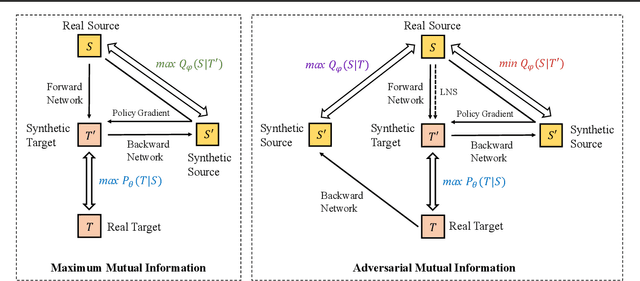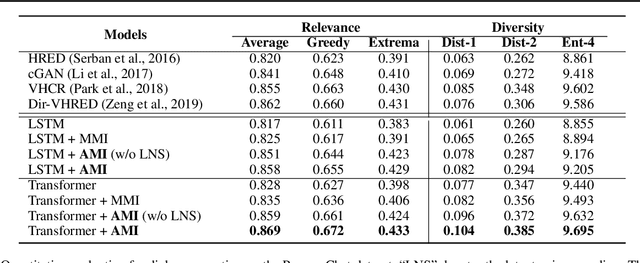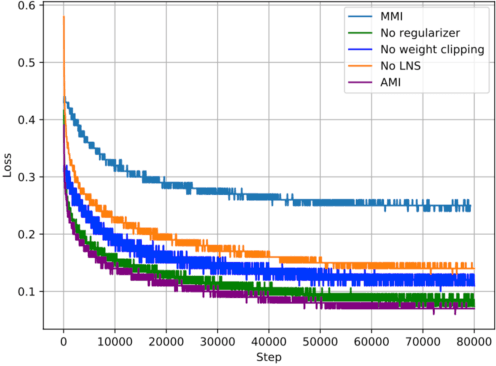Adversarial Mutual Information for Text Generation
Paper and Code
Jun 30, 2020



Recent advances in maximizing mutual information (MI) between the source and target have demonstrated its effectiveness in text generation. However, previous works paid little attention to modeling the backward network of MI (i.e., dependency from the target to the source), which is crucial to the tightness of the variational information maximization lower bound. In this paper, we propose Adversarial Mutual Information (AMI): a text generation framework which is formed as a novel saddle point (min-max) optimization aiming to identify joint interactions between the source and target. Within this framework, the forward and backward networks are able to iteratively promote or demote each other's generated instances by comparing the real and synthetic data distributions. We also develop a latent noise sampling strategy that leverages random variations at the high-level semantic space to enhance the long term dependency in the generation process. Extensive experiments based on different text generation tasks demonstrate that the proposed AMI framework can significantly outperform several strong baselines, and we also show that AMI has potential to lead to a tighter lower bound of maximum mutual information for the variational information maximization problem.
 Add to Chrome
Add to Chrome Add to Firefox
Add to Firefox Add to Edge
Add to Edge